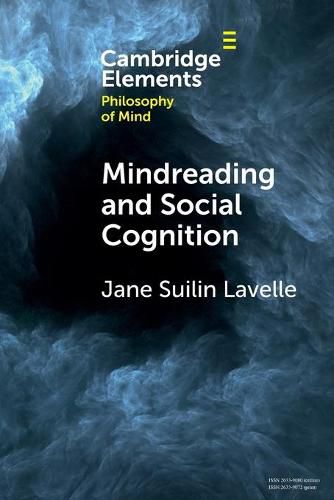Readings Newsletter
Become a Readings Member to make your shopping experience even easier.
Sign in or sign up for free!
You’re not far away from qualifying for FREE standard shipping within Australia
You’ve qualified for FREE standard shipping within Australia
The cart is loading…






The cognitive ability to think about other people’s psychological states is known as “mindreading’. This Element critiques assumptions that have been formative in shaping philosophical theories of mindreading: that mindreading is ubiquitous, underpinning the vast majority of our social interactions; and that its primary goal is to provide predictions and explanations of other people’s behaviour. It begins with an overview of key positions and empirical literature in the debate. It then introduces and motivates the pluralist turn in this literature, which challenges the core assumptions of the traditional views. The second part of the Element uses case studies to further motivate the pluralist framework, and to advocate the pluralist approach as the best way to progress our understanding of social cognitive phenomena.
$9.00 standard shipping within Australia
FREE standard shipping within Australia for orders over $100.00
Express & International shipping calculated at checkout
The cognitive ability to think about other people’s psychological states is known as “mindreading’. This Element critiques assumptions that have been formative in shaping philosophical theories of mindreading: that mindreading is ubiquitous, underpinning the vast majority of our social interactions; and that its primary goal is to provide predictions and explanations of other people’s behaviour. It begins with an overview of key positions and empirical literature in the debate. It then introduces and motivates the pluralist turn in this literature, which challenges the core assumptions of the traditional views. The second part of the Element uses case studies to further motivate the pluralist framework, and to advocate the pluralist approach as the best way to progress our understanding of social cognitive phenomena.